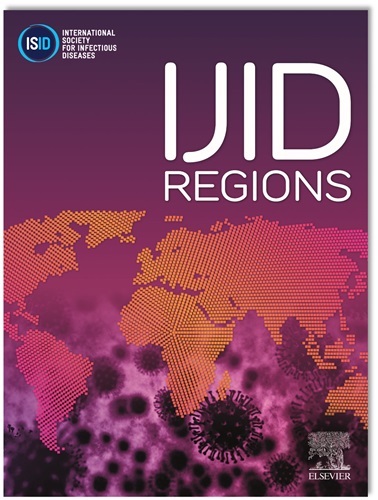Addressing the rise of autochthonous vector-borne diseases in a warming Europe
IF 4.8
2区 医学
Q1 INFECTIOUS DISEASES
引用次数: 0
Abstract
The perspective explores the emergence of autochthonous tropical diseases in Europe, driven by climate change and the associated increase in vector-borne diseases. Rising temperatures, along with changes in humidity and rainfall patterns, have altered the activity, distribution, and diversity of vectors such as mosquitoes and ticks. Species like Aedes albopictus and Aedes aegypti, which are primary vectors of dengue, have established self-sustaining populations across Europe. This spread has led to a surge in cases of dengue fever, West Nile virus, and tick-borne encephalitis in temperate regions. The complexity of predicting these outbreaks is compounded by factors like vector diapause, serological cross-reactivity, and land-use changes. The perspective calls for the implementation of enhanced surveillance, weather-linked predictive models, and robust vector control strategies to mitigate the public health risks posed by the spread of these diseases. As climate change accelerates, Europe faces increasing health threats previously confined to tropical regions, emphasizing the need for proactive public health measures to protect populations from this growing threat.
在气候变暖的欧洲应对自生病媒传染病的增加。
该视角探讨了在气候变化和相关病媒传染病增加的推动下,欧洲出现的自生热带疾病。气温上升以及湿度和降雨模式的变化,改变了蚊子和蜱虫等病媒的活动、分布和多样性。白纹伊蚊和埃及伊蚊等登革热主要病媒已经在欧洲各地建立了自我维持的种群。这种传播导致温带地区登革热、西尼罗河病毒和蜱传脑炎病例激增。病媒休眠、血清交叉反应和土地使用变化等因素加剧了预测这些疾病爆发的复杂性。从这个角度看,需要实施强化监测、与天气相关的预测模型和强有力的病媒控制策略,以减轻这些疾病的传播所带来的公共卫生风险。随着气候变化的加速,欧洲面临着越来越多以前仅限于热带地区的健康威胁,这强调了采取积极的公共卫生措施保护民众免受这一日益严重的威胁的必要性。
本文章由计算机程序翻译,如有差异,请以英文原文为准。
求助全文
约1分钟内获得全文
求助全文
来源期刊
CiteScore
18.90
自引率
2.40%
发文量
1020
审稿时长
30 days
期刊介绍:
International Journal of Infectious Diseases (IJID)
Publisher: International Society for Infectious Diseases
Publication Frequency: Monthly
Type: Peer-reviewed, Open Access
Scope:
Publishes original clinical and laboratory-based research.
Reports clinical trials, reviews, and some case reports.
Focuses on epidemiology, clinical diagnosis, treatment, and control of infectious diseases.
Emphasizes diseases common in under-resourced countries.

 求助内容:
求助内容: 应助结果提醒方式:
应助结果提醒方式:


